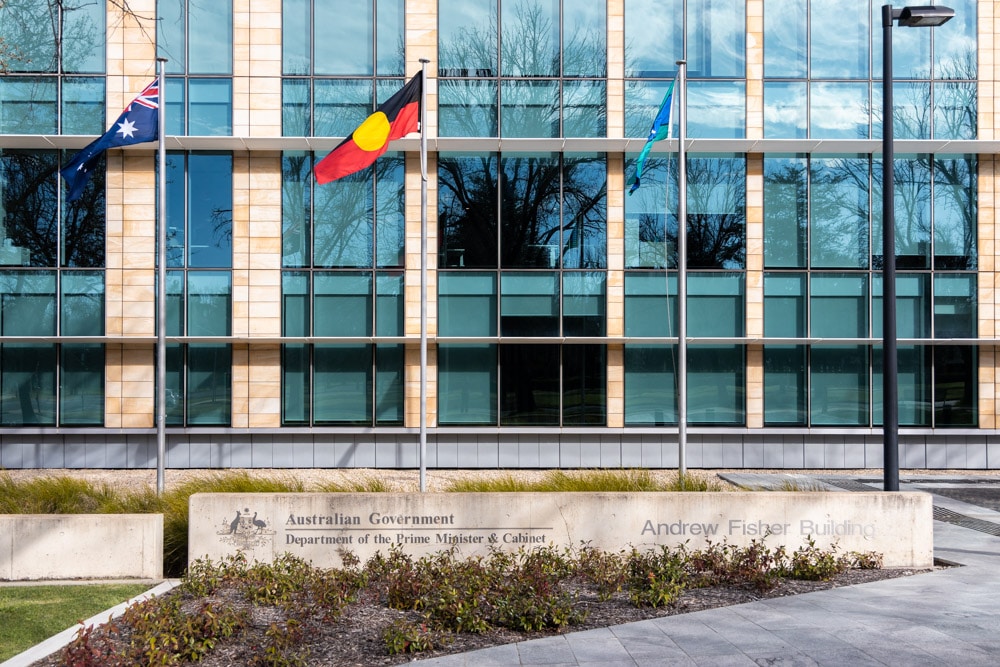The Australian Public Service is the ACT’s biggest employer – and almost three-quarters of local federal public servants are working from home during the lockdown, quietly keeping the country running smoothly despite the turmoil.
According to the latest available data, on 25 August, 73 per cent of ACT-based APS employees worked from home, more than half as many again (up 54 per cent) as worked from home on 11 August, the day before the ACT lockdown began. Numbers fluctuate depending on government lockdowns and the location of employees.
“The Australian Public Service has become accustomed to working in different ways over the course of the pandemic, ensuring we continue to meet the needs and expectations of the Australian public and government,” the APS Commission (APSC) spokesperson said.
Some staff are still working from their usual workplaces to deliver essential services, while other staff are working remotely, they said.
APS census results indicate that most staff (85 per cent) strongly believe in the purpose and objectives of the APS.
“This can assist when faced with the practical challenges of working throughout the pandemic,” the spokesperson said.
APS agency heads remain responsible for making decisions regarding home-based work in accordance with their existing workplace arrangements and their legislative requirements under the Fair Work Act 2009.
APS leaders meet regularly to discuss developments in the COVID-19 situation, with a focus on the safety and wellbeing of employees, business continuity, and ensuring essential public services continue to be delivered.
Services and resources are available on the APSC website to support APS employees during lockdown.
One public servant said their Department had been “broadly good” in terms of communicating with staff during lockdown about the changed arrangements.
“The process to move to working from home and get equipment is working well. It’s been easier this time around, after lessons from previous experience.”
Pressure on staff from a lean workforce has not changed; the workload had not decreased at all, even where non-COVID-related. But department and staff had adopted well to working from home, and delivery was still just as good as in the office.
Some individual departments
“Throughout COVID-19, the Department of Defence has prioritised the safety and wellbeing of its personnel, and seeks to be exemplars for the Australian community,” a Defence spokesperson said. This includes adhering to all State and Territory requirements relating to stay-at-home restrictions, and COVID Safe requirements such as wearing masks and physical distancing.
Where possible, Defence supports flexible work arrangements where it suits the individual and Defence’s operational requirements.
“The nature of Defence’s work means it is not purely an office-based workplace, ranging from office accommodation to military bases,” the spokesperson said. “As such, our workforce has always maintained a hybrid style of work locations.”
Defence provides a range of support services for APS employees and ADF members, and remains dedicated to maintaining the wellbeing and positive mental health of all staff, the spokesperson said.
Canberra-based employees of the Department of Education, Skills and Employment have worked from home since 5pm on Thursday 12 August, unless their role requires them to work in the office, a DESE spokesperson said.
In line with the Department’s COVID-safe plan, measures are in place to protect the health and safety of the small number of staff who are required to work in the office.
The Department regularly provides staff with informed expert advice on how to maintain health and wellbeing while working from home and encourages staff to use a suite of material available on its intranet.
Additional support measures, such as the Department’s EAP, mental health coaching sessions, and Beyond Blue’s Coronavirus Mental Wellbeing Support Service are also available for those who may require them.
Approximately 90 per cent of staff at the Department of Prime Minister and Cabinet are working from home, a PM&C spokesperson said.
Only staff in critical functions that cannot be performed remotely must be in the office, and PM&C is ensuring these staff follow the latest ACT Health advice. This includes wearing face masks and adhering to physical distancing and hygiene principles.
Managers are providing maximum flexibility, such as varied working patterns, to ensure working from home arrangements are effective and sustainable, particularly where staff have caring responsibilities. Staff may also apply for annual or long service leave.
Supported by the Wellbeing Network, the Department encourages all staff to practise self-care while in lockdown. This includes practical tools such as a guide for those working and caring for family during lockdown.
Staff feeling worried or anxious are encouraged to talk to their managers, access counsellors through an Employee Assistance Program (EAP), or explore wellbeing support through the Department’s intranet.
Regular updates on health and safety arrangements and wellbeing supports are provided from the Chief Operating Officer.
The vast majority of employees at the Department of Social Services in Canberra are temporarily working from home, a DSS spokesperson said.
Staff laptops enable them to continue delivering programs and services during the temporary lockdown. Managers and teams communicate and engage regularly using the collaboration software on their laptops.
Online information, resources, and referral services help staff manage their work and personal responsibilities, and their work health and safety, while working remotely. The Department and its staff continue to focus on delivering high quality programs and services to the Australian community.
For more news:



